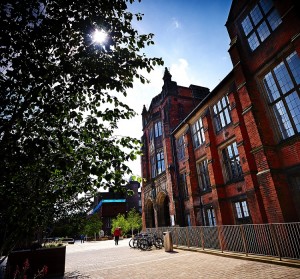As part of our ‘Ideas for an Incoming Government’ series, Rachel Lofthouse from the Research Centre for Learning and Teaching (CfLaT)within the School of Education, Communication and Language Sciences at Newcastle University, writes about the pressing need for supportive improvements to the current teacher training infrastructure.
What is the problem?
A change is needed in our education system. Rapid policy developments prioritise the role of schools as providers of workplace learning, affecting the experiences of and infrastructure for teacher training. Even those professionals who support ‘on the job’ training for teachers appreciate that meeting the learning and social needs of children and young people has to be every school’s priority. In the current system new teachers are immediately exposed to the performative culture of schools, having their individual successes and failures measured and graded from the moment they arrive.
In some cases this creates significant anxiety. Student teachers may not be encouraged to innovate and instead they simply learn how to survive. Instead of new teachers being a source of inspiration and innovation, they adopt normative practices, and their potential and energy is not garnered for their individual benefit or that of the schools. In the worst cases, instead of building the necessary professional capacity to work flexibly to meet ever changing demands of the job, they become less resilient to the stresses of the job.
The solution
Student teachers should be educated not only individually but also in teams, tackling real-life workplace challenges through projects based on research, development and practice. The teams would be supported by co-coaches (experienced teachers and academic tutors working together) who enable their team to develop collaborative, empowering and supportive relationships, as well as the knowledge and skills required for them to tackle the genuine challenges of teaching. The responsibility for the professional learning of all student teachers in a team becomes a collective one; each team is aiming for the best possible outcomes in terms of professional learning, pupil outcomes, and school development.
Through PROJECT-TEACH, intelligent thinking would be applied to teacher training, drawing on the principles of successful learning organisations, coaching and project-based learning:
- Post-graduate student teachers would form project teams hosted by, and learning on behalf of, an alliance of schools, supported by ‘co-coaches’ – providing combined professional and academic expertise and drawing on principles of servant leadership. The motto of this approach is to ‘gather intelligence and use it intelligently’.
- The project teams would work through a number of core projects spanning the school year, based on the principles of ‘project-based learning’. Each project would include the need to teach, and as the year progressed this would be over more sustained periods and include working with learners across the relevant age range and with complex needs. This teaching comes as a culmination of research and development, making it more evidence-based and allowing for systematic evaluation of outcomes. Student teachers would be registered as post-graduate students, and gain academic awards as well as evidence of meeting professional standards as a result of PROJECT-TEACH.
- Learning is a social process, and PROJECT-TEACH would enable new teachers to develop skills and knowledge through collaboration on authentic and rich learning tasks set in the context of the workplace. The project briefs would be planned by drawing on the combined expertise of the professional and academic co-coaches who would design them to meet the ambitions of the host schools as well as to take account of the development stage of the new teachers. New teachers would meet the Teacher Standards through coherent development opportunities rather than through atomised practice. The ‘standards’ would develop significance in terms of long-term occupational capacity, rather than simply as a checklist of time and context limited competencies.
PROJECT-TEACH sits firmly in the current Department for Education policy of creating a ‘Self-improving school led system’, in that it would be ‘evidence based, data rich, sustainable, focused, attract and retain talent and create a collective moral purpose’. It does however challenge some of the current practices of teacher education. While the Carter Review of Initial Teacher Training (DfE, 2015) recognised that the ‘challenge for the nation is to maintain a supply of outstanding teachers so that every child has the opportunity to be taught by inspirational, skilled teachers throughout their time in school’ (p.3), it lacked imagination in its proposals for re-creating teacher education. PROJECT-TEACH can be afforded within current budgets; student teachers pay their training fee, and gain DfE bursaries according to prior qualification. It is a matter of ensuring that the resource is deployed differently to support the approach and ensure excellent outcomes.
The evidence
- Billett (2011) identifies three dimensions to workplace learning; the practice curriculum, the practice pedagogies, and the personal epistemologies. PROJECT-TEACH would act on each dimension by developing a curriculum based on project-based learning and by addressing the student teachers’ learning needs through more open engagement with authentic complex tasks.
- Student teachers would be supported by expert co-coaches drawing on the principles of effective teacher coaching (Lofthouse et.al, 2010) and servant leadership through which they prioritise the needs of the student teachers as their main professional role. . This would counter the impacts of the pervasive performativity culture (Ball, 2003) and detrimental practices of judge mentoring (Hobson & Malderez, 2013) in which judgements made by experienced teachers are rapidly revealed to the novice student teachers undermining the potential of mentoring processes to support development.
- PROJECT-TEACH would develop new teachers’ resilience by enabling them to develop positive collective teacher efficacy and beliefs, which can help to mitigate the deleterious effects associated with socio-economic deprivation (Gibbs & Powell, 2012) and as such would help to address the problems in teacher supply and retention in England.
- PROJECT-TEACH would support schools to become learning organisations where staff and students ‘continually expand their capacity to create the results they truly desire, where new and expansive patterns of thinking are nurtured, where collective aspiration is set free’ (http://infed.org/mobi/peter-senge-and-the-learning-organization/).
- PROJECT-TEACH would build a ‘culture of trust (and challenge) in schools to enable professional learning of teachers to prosper’ which was recognised as key by the 2015 Sutton Trust’s ‘Developing Teachers report and thus encourage the essential components of professional learning of ‘creativity, innovation and a degree of risk-taking’ (Major, 2015).
We need to put energy and vitality back into educating (not simply training) new teachers, ensuring that those that enter the profession gain relevant expertise but also the experience and insight to fulfil their potential role to transform schools for the next generation, not simply replicate the working practices of yesterday’s schools.
References:
- Ball, S. J. (2003) The teacher’s soul and the terrors of performativity. Journal of Education Policy, 18(2), 215-228
- Billett, S (2011) Workplace curriculum: practice and propositions, in F. Dorchy, D Gijbels. Theories of Learning for the Workplace, Routledge, London (pp.17-36)
- DfE (2015) The Carter review of initial teacher training (ITT)
- Gibbs, S., & Powell, B. (2012) Teacher Efficacy and Pupil Behaviour: the structure of teachers’ individual and collective efficacy beliefs and their relationship with numbers of children excluded from school. British Journal of Educational Psychology, 82(4), 564-584.
- Hobson, A.J. (2013) Judgementoring and other threats to realizing the potential of school-based mentoring in teacher education, International Journal of Mentoring and Coaching in Education, Vol 2 [2] 89-108
- Lofthouse, R., Leat, D and Towler, C., (2010) Improving Teacher Coaching in Schools; A Practical Guide, CfBT Learning Trust
- Lofthouse, R. & Thomas, U. (2014) Mentoring student teachers; a vulnerable workplace learning practice, International Journal of Mentoring and Coaching in Education Vol. 3 (3) pp. 201 – 218
- Lofthouse, R., Thomas, U. & Cole, S. (2011) Creativity and Enquiry in Action: a case study of cross-curricular approaches in teacher education. Teacher Education Advancement Network Journal, Vol. 2(1), pp.1-21.
- Major, L.E. (2015) Developing Teachers; Improving professional development for teachers, The Sutton Trust
Tweet @Social_Renewal using #Ideas4anIncomingGovt to join in the conversation.



